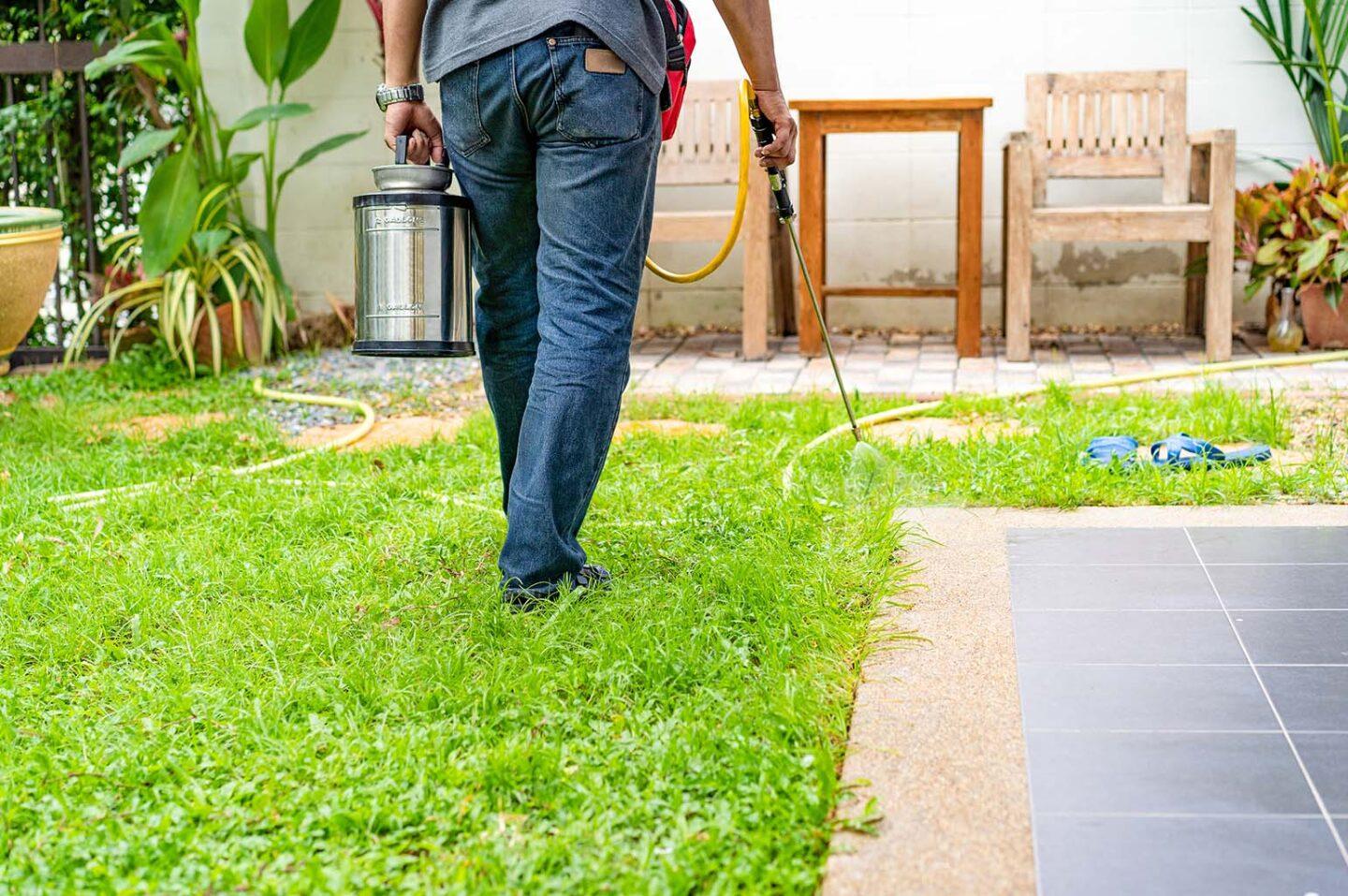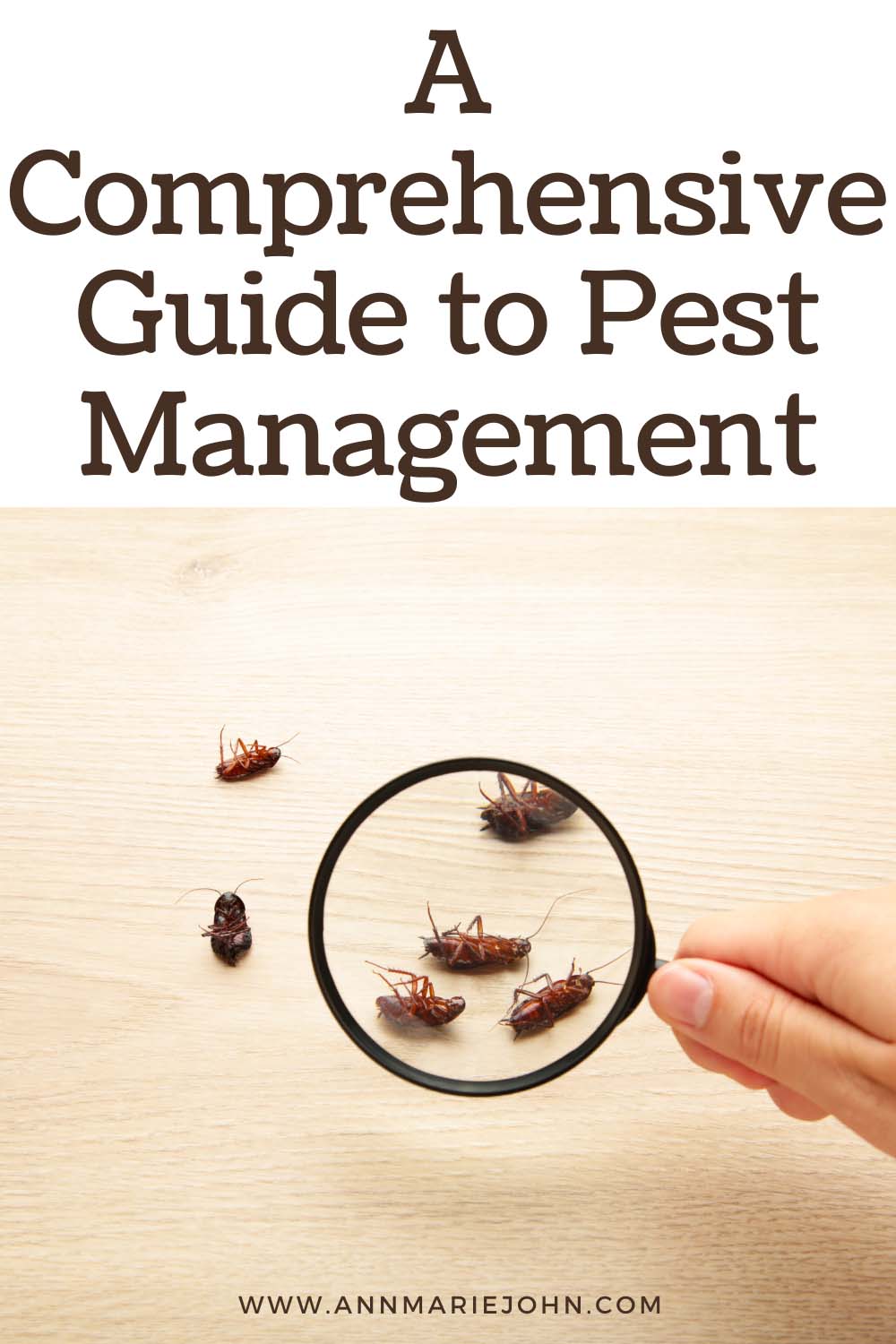Explore our comprehensive guide to pest management and discover effective strategies for a pest-free environment. From prevention tips to eco-friendly solutions, empower yourself with the knowledge to keep your space bug-free. Your go-to resource for a healthier, pest-resistant life

Pests. The mere mention of these uninvited intruders is enough to send shivers down the spine of any homeowner or business owner. Whether it’s the relentless march of ants through your kitchen, the eerie scuttling of cockroaches in the shadows, or the persistent buzzing of mosquitoes in your backyard, pests can turn your peaceful haven into a nightmare. But fear not!
In this comprehensive guide to pest management, we’ll unravel the secrets to keeping your space pest-free. From identifying common pests and understanding their behavior to exploring effective prevention and eradication methods, this guide is your roadmap to reclaiming your home and sanity. Let’s get started.

Professional Pest Control
When home remedies and DIY efforts fall short, enlisting the expertise of professional pest control services is a prudent choice. Whether you’re seeking professionals for pest control in Boston, MA, or any other area, ensure that they possess credibility and a solid reputation. They employ a range of methods, including chemical treatments, traps, and integrated pest management (IPM) strategies tailored to your specific pest issue.
Additionally, professional pest control services can offer ongoing maintenance and prevention plans to ensure long-term pest management. By relying on their skills, you can address pest problems with precision and minimize the potential risks associated with pest infestations in your home.
Maintain Cleanliness
Keeping a clean and hygienic home is one of the fundamental strategies for pest management. Regular and thorough cleaning routines are essential for preventing pests from taking up residence. Crumbs, spills, and food residue must be promptly cleaned up, especially in kitchens and dining areas, as they are primary attractants for many pests. Storing food in airtight containers is crucial to deny pests easy access to their food source.
Furthermore, maintaining a clean and clutter-free environment reduces hiding spots for pests, making it easier to spot and address any potential infestations early. By prioritizing cleanliness, you create an inhospitable environment for pests, significantly reducing the risk of their intrusion.
Proper Waste Management
Effective waste management is a vital aspect of pest control in and around your home. To minimize the attraction of pests, it’s essential to dispose of trash in sealed containers with tight-fitting lids, preventing easy access to food scraps and odors that pests find enticing. Regularly emptying and cleaning garbage cans is equally important to eliminate any residual food residue.
In addition to indoor waste, outdoor waste bins should also be well-maintained and placed at a distance from the home to deter pests from approaching. By practicing diligent waste management, you not only reduce the risk of pest infestations but also contribute to a healthier and more hygienic living environment.
Remove Standing Water
Standing water can serve as a breeding ground for various pests, such as mosquitoes and certain types of flies. To prevent these unwanted visitors, it’s essential to eliminate any sources of standing water in and around your home. This includes addressing issues like leaky faucets, clogged drains, and poorly draining gutters. Emptying and maintaining containers that collect rainwater, like buckets, flower pots, and bird baths, is also critical.
Regularly inspecting your property for puddles or stagnant water can help ensure that pests have no suitable environment to reproduce. By taking these steps, you reduce the likelihood of pest-borne diseases and maintain a safer, more comfortable living space.
Consider Natural Remedies and Traps
In your quest to manage pests in your home, natural remedies and traps offer an eco-friendly and non-toxic approach. Natural pest deterrents like diatomaceous earth, peppermint oil, or vinegar can be effective in deterring pests without the use of harmful chemicals. These remedies can be applied strategically in areas where pests are problematic.
Additionally, setting up traps or baits designed for specific pests, such as mouse traps or flypaper, can help capture and control the infestation. These methods can be a valuable component of your pest management strategy, especially when dealing with smaller pest populations or for those who prefer environmentally conscious solutions.
Seal Entry Points
Preventing pests from infiltrating your home begins with a vigilant inspection and sealing of potential entry points. Pests can exploit even the tiniest gaps, cracks, or openings in walls, doors, windows, and foundations. To thwart their access, employ materials like caulk, weatherstripping, or mesh screens to seal these vulnerable areas. Regular maintenance is crucial, as weather conditions and wear and tear can create new openings.
By effectively sealing these entry points, you not only block pests’ paths into your home but also enhance your energy efficiency and insulation. It’s a proactive and cost-effective measure that fortifies your defense against unwelcome invaders and helps maintain a pest-free environment.
In Conclusion
Incorporating these pest management strategies into your home maintenance routine can significantly reduce the risk of pest infestations. Maintaining cleanliness, proper waste management, and eliminating standing water create an environment less hospitable to pests, while natural remedies and traps offer non-toxic solutions. For added protection, sealing entry points fortifies your home’s defenses. Should pests persist or become a significant concern, professional pest control services can provide specialized expertise. By employing these methods and being proactive in your approach, you can enjoy a pest-free and comfortable living environment.
